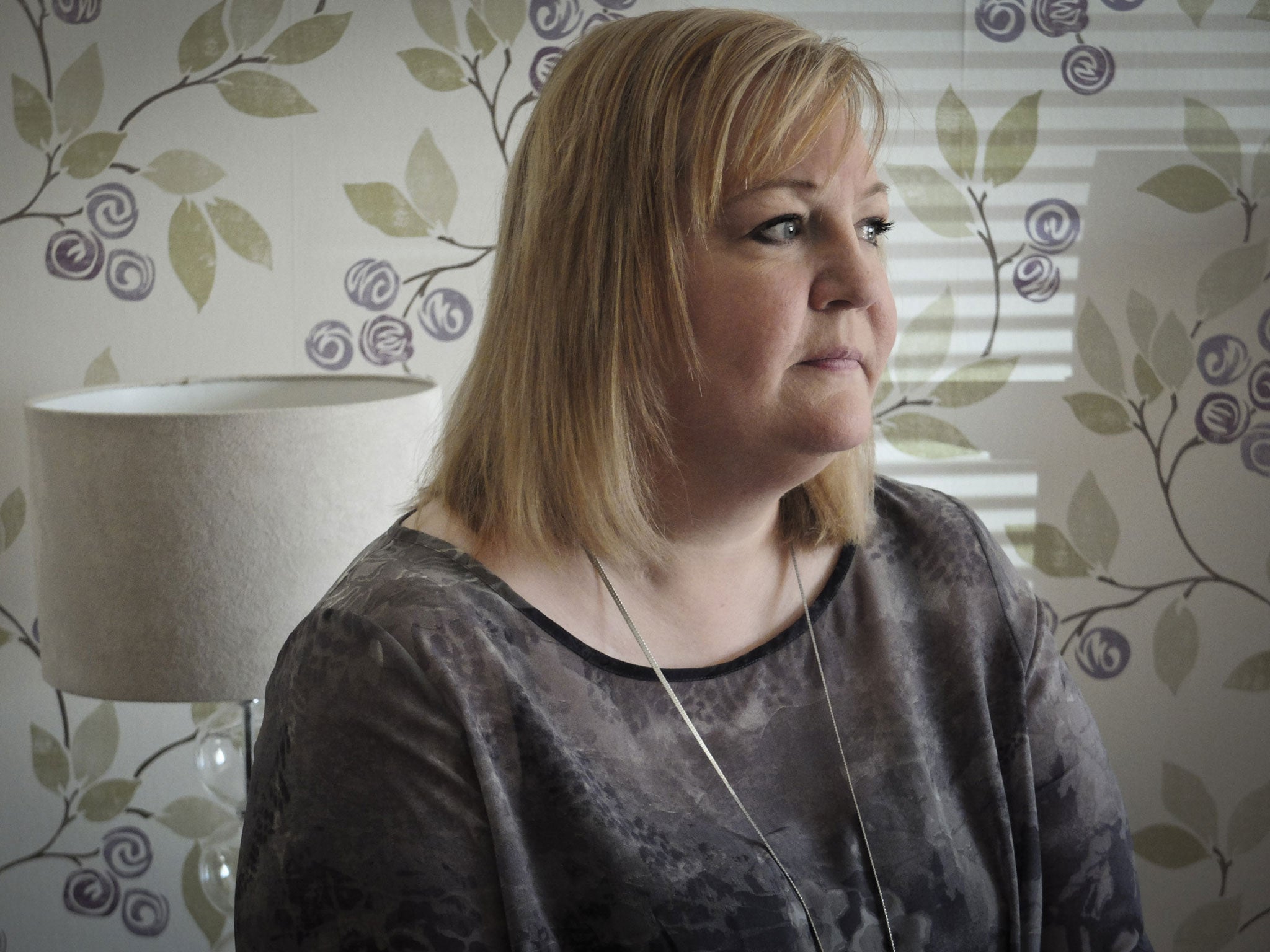At what cost? Life-saving drug withheld
Woman's kidney transplant is cancelled as minister refuses to fund anti-rejection Soliris

A woman awaiting a transplant for a rare condition that has destroyed her kidneys had her operation cancelled at the 11th hour because the Government refused to pay for the drug she needs to prevent the organ being rejected.
Up to 70 patients are in the same position as Dianne Illingworth, 41, who have been forced to put their lives on hold, and risk their condition deteriorating, while ministers and officials argue over whether the NHS can afford the drug, Eculizumab, which costs more than £300,000 per patient per year.
Ms Illingworth, from Newcastle upon Tyne, who suffers from atypical haemolytic uraemic syndrome (aHUS), an inherited condition, had been given a date for surgery in February after her husband, Lee, volunteered to be a donor. But the transplant was cancelled when the health minister, Earl Howe, rejected a recommendation from an expert committee that the drug be "routinely provided nationally".
Instead, Earl Howe referred the drug for further investigation by the National Institute for Health and Care Excellence (Nice), which took over responsibility for treatments for rare diseases in April.
Nice has yet to explain how it is going to assess drugs for rare diseases. A spokesman said an announcement would be made "within weeks". The drugs can be life-saving but are hugely expensive because they affect very small numbers of patients. They cannot therefore be assessed according to the usual cost-effectiveness threshold of £30,000 per patient per year (adjusted for quality of life) .
Some experts fear the move could signal a tough new approach to the funding of expensive treatments for marginal groups. But that would undermine the role of a national health system to pool the risks for the whole population in order to fund individuals with exceptional health needs.
Nice's verdict on Eculizumab, which is made by Alexion under the brand name Soliris, is not expected before summer 2014. Eculizumab costs £327,600 a year for an adult and £163,800 for a child with aHUS.
In the meantime, NHS England has established an interim scheme under which new patients – around 20 a year – will get the drug and existing patients already on it will continue to receive it. But patients not currently receiving Eculizumab, such as Dianne, will have to wait for Nice's decision.
Dianne has suffered kidney problems since her early twenties and had her first transplant in 2002. For seven years her kidney performed well but in 2009 she went into renal failure and was diagnosed with aHUS, which affects fewer than 200 people in the UK.
The condition causes damage to the kidneys, leading to irreversible kidney failure. Dianne was prescribed the new drug Eculizumab and her kidney recovered. "Within a week I was off dialysis and felt so much better. But after 18 months my kidney failed again," she said.
She was put back on dialysis while the search began for another donor. This time her husband, Lee, now 42, volunteered, and proved to be a good match. "It took me a long time to accept the idea that Lee would be the donor. Eventually, we were given a date for the surgery in February. Then in January the consultant called me in and explained the operation could not go ahead because the minister had refused to fund the drug.
"I was devastated. It had taken us a long time to come round to the idea – and then it was snatched away."
Dianne now has dialysis every night at home but it is not working well and she will soon have to transfer to hospital for sessions three times a week. She is severely anaemic, which causes fatigue. "My health is poor and I can't walk far."
Professor Tim Goodship, chair of aHUS Action, said: "A transplant transforms people's lives. This opportunity has been dangled in front of them and then withdrawn. I feel it is just cruel."
Madeleine Moon, Labour MP and chair of the All-Party Kidney Group, said: "It was heartbreaking to see the agony that people denied access to Eculizumab went through... The Government has made a heartless decision to allow existing trial and new patients access to the drug but not those who have been refused access on cost grounds by their hospital."
A Department of Health spokesperson said: "Patients currently receiving Eculizumab under individual funding requests will continue to do so. NHS England will consider any new funding requests until Nice has completed its assessment...
"We understand this news will be disappointing for patients... but we need to make sure the impact of Eculizumab on NHS resources is properly considered."
A spokesperson for NHS England, said: "Patients who are critically ill and who need Eculizumab urgently will receive it."
Join our commenting forum
Join thought-provoking conversations, follow other Independent readers and see their replies
Comments